Zero Waste Living: Reusable Products for Daily Life

Table of Contents
This comprehensive guide empowers you to embrace a zero-waste lifestyle on the go with the help of convenient and impactful reusable products. Discover the benefits of reducing single-use waste, explore a range of reusable essentials for daily life, and gain practical tips for integrating them seamlessly into your routine. Let’s embark on a journey towards a greener future, one reusable product at a time!
A. The Rise of Zero Waste Living
The zero-waste movement has gained significant traction as more people recognize the need to reduce their environmental footprint. Zero waste living involves minimizing waste generation by emphasizing the principles of reducing, reusing, and recycling. This movement is crucial for preserving natural resources, decreasing pollution, and combating climate change. For further reading, explore Zero Waste Home and Bea Johnson’s Blog.
The movement’s growth is fueled by increasing awareness of environmental issues such as overflowing landfills, ocean pollution, and climate change. Individuals, communities, and businesses are adopting zero waste practices to make a tangible difference. Cities around the world are implementing zero waste policies, and a growing number of companies are committing to sustainable packaging and production methods.
B. Beyond Home: Zero Waste on the Go
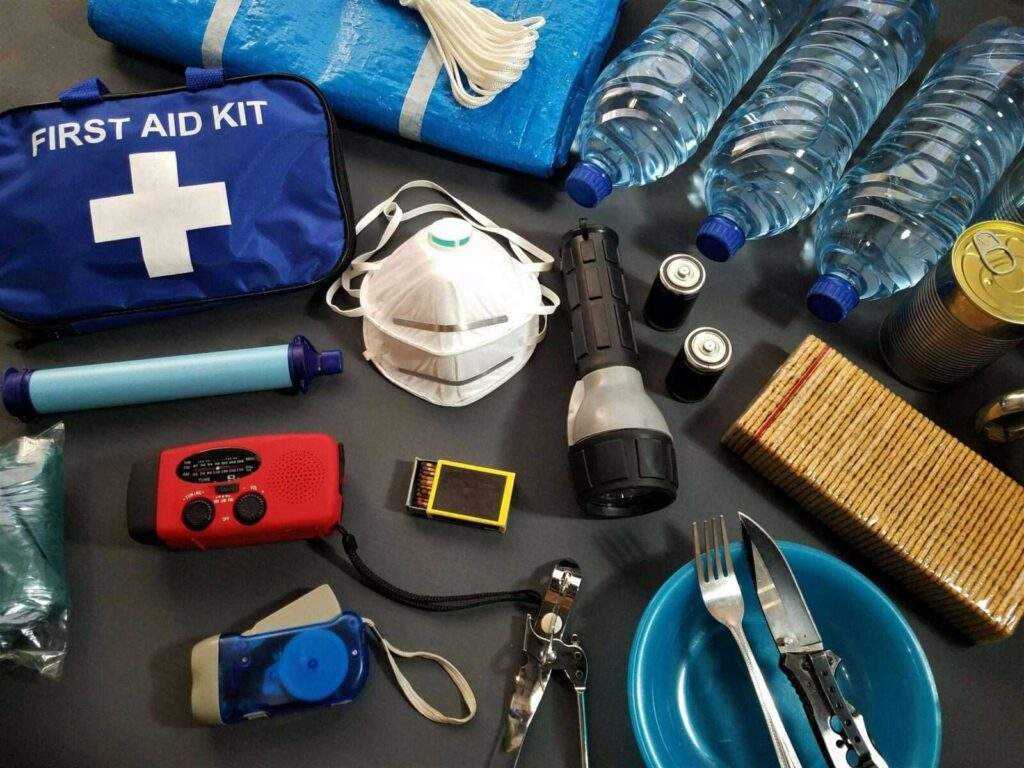
While many focus on reducing waste at home, it’s essential to adopt zero-waste practices in daily activities outside the home, such as commuting, shopping, eating out, and traveling. Incorporating sustainable habits into our routines can significantly reduce our environmental footprint.
Zero waste on the go involves being prepared and mindful about the items you use and dispose of when you’re not at home. This can include carrying reusable items such as water bottles, coffee cups, utensils, and shopping bags, as well as choosing sustainable options when dining out or traveling.
C. The Problem with Single-Use Products
Single-use plastics and disposable items pose a severe threat to our environment. These products are designed for one-time use and then discarded, leading to massive waste generation.
- Environmental Burden: Single-use items contribute to overflowing landfills and increased pollution. They often end up in oceans and natural habitats, taking hundreds of years to decompose. More details can be found at Plastic Pollution Coalition and Oceana.
- Impact on Ecosystems and Wildlife: Plastic pollution harms marine life and wildlife. Animals mistake plastic for food, leading to ingestion and entanglement, which can be fatal. Additionally, microplastics contaminate water sources and enter the food chain, posing health risks to both animals and humans.
D. The Power of Reusable Products
Switching to reusable products is a simple yet effective way to reduce waste and promote sustainability.
- Reduce Waste Generation: Using items that can be cleaned and reused decreases the volume of waste sent to landfills and incinerators.
- Save Money: Reusable products may have a higher upfront cost but save money in the long run by eliminating frequent purchases of disposable items.
- Promote Convenience: Reusable products are often more durable and functional. For example, a sturdy reusable water bottle can keep beverages at the desired temperature for longer periods.
- Personal Responsibility: Embracing reusable products fosters a sense of personal responsibility towards environmental sustainability.
Essential Reusable Products for Daily Life
A. Conquer Your Thirst: Reusable Water Bottles
Staying hydrated is essential, but disposable plastic water bottles have a significant environmental impact.
- Environmental Impact: Disposable plastic bottles contribute to landfill waste and pollution. The production and transportation of these bottles also require substantial resources. The energy used in manufacturing plastic bottles and the oil needed for their production exacerbate their environmental footprint.
- Reusable Options: Explore various types of reusable water bottles, such as stainless steel, insulated, and collapsible bottles, which offer different benefits, including durability and temperature retention. Brands like Hydro Flask, Klean Kanteen, and S’well provide a wide range of options.
- Choosing the Right Bottle: Consider factors like material, capacity, and design when selecting a reusable water bottle. Stainless steel bottles are durable and often insulated, keeping drinks cold or hot for extended periods. Collapsible bottles are convenient for travel, as they save space when not in use.
- Maintenance Tips: Clean your bottle regularly to maintain hygiene. Many bottles are dishwasher-safe, making maintenance easy. Use bottle brushes for thorough cleaning, especially for narrow-necked bottles. Websites like Clean Kanteen offer cleaning accessories.

B. Coffee on the Go: Reusable Coffee Cups
Disposable coffee cups are a significant contributor to landfill waste.
- Environmental Cost: Disposable coffee cups and their plastic lids add to landfill waste and often cannot be recycled due to their plastic lining. This lining prevents liquid from leaking but makes the cups challenging to recycle. Each year, billions of disposable cups end up in landfills.
- Reusable Options: Introduce various reusable coffee cup options, such as insulated mugs, travel mugs, and leak-proof designs. Brands like KeepCup and Joco Cup offer stylish and functional choices.
- Convenience: Many coffee shops offer discounts for customers who bring their own cups. Reusable cups are also more durable and can keep drinks at the desired temperature for longer periods. Insulated cups can keep beverages hot for hours, making them perfect for commuters and travelers.
C. Ditch the Disposables: Reusable Utensil Sets
Single-use plastic utensils are prevalent but environmentally damaging.
- Environmental Drawbacks: Single-use utensils contribute to plastic pollution and often end up in oceans and natural habitats. These utensils are lightweight and easily blown into waterways, where they harm marine life.
- Portable Reusable Sets: Carrying a portable, reusable utensil set, such as those made from stainless steel or bamboo, is compact, eco-friendly, and multi-purpose. Brands like To-Go Ware and Bamboo Cutlery offer great options.
- Choosing the Right Set: Consider sets that include a variety of utensils and are easy to clean. Foldable options are convenient for travel. Look for sets with carrying cases to keep utensils clean and organized.
D. Grocery Shopping Made Greener: Reusable Bags
Plastic grocery bags are harmful to wildlife and ecosystems.
- Negative Impact: Plastic bags contribute to pollution and can be deadly to marine life that mistakes them for food. Bags break down into microplastics, which contaminate soil and waterways.
- Reusable Options: Explore various types of reusable shopping bags, such as tote bags, reusable produce bags, and mesh bags. Websites like Baggu and ChicoBag offer stylish and durable options.
- Convenience and Durability: Reusable bags are more durable and can hold more weight compared to disposable options. They are also easy to carry and store. Some reusable bags can be folded into small pouches, making them convenient to keep in your car or purse for spontaneous shopping trips.
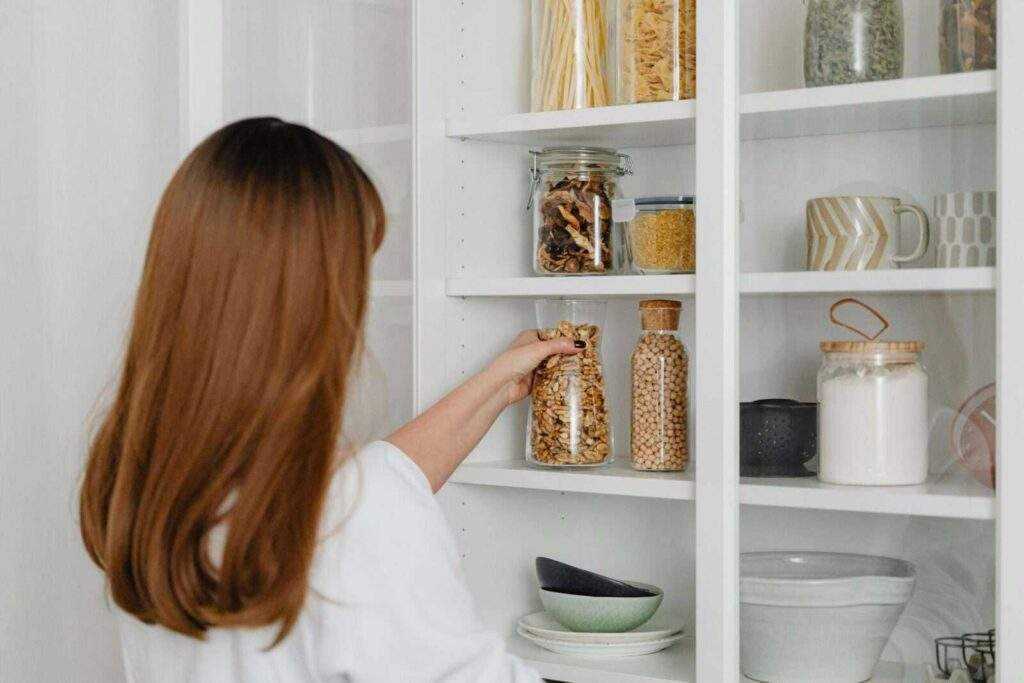
E. Packing Your Lunch Sustainably: Reusable Food Containers
Single-use plastic wrap and disposable lunch containers have a significant environmental impact.
- Environmental Impact: These items contribute to landfill waste and pollution. Plastic wrap and disposable containers are often not recyclable and add to the growing problem of plastic waste.
- Reusable Alternatives: Introduce alternatives like glass containers, silicone food wraps, and reusable lunch bags. Brands like Stasher and Eco Lunchbox offer great options.
- Choosing Leak-Proof Options: Ensure your containers are leak-proof to maintain food freshness and prevent spills. Look for options that are easy to clean and dishwasher-safe. Silicone food wraps, such as those offered by Bee’s Wrap, are great alternatives to plastic wrap and can be used to cover bowls or wrap food.
F. Straws Without the Waste: Reusable Straws
Plastic straw pollution is a growing concern, particularly for marine life.
- Impact on Marine Life: Plastic straws are often ingested by marine animals, causing harm or death. Straws are among the top 10 items found during beach cleanups.
- Reusable Options: Showcase various reusable straw options, such as stainless steel, bamboo, and silicone. Brands like Final Straw and Simply Straws offer durable and eco-friendly options.
- Eco-Friendly Materials: Choose straws made from eco-friendly and long-lasting materials. Cleaning brushes are often included for easy maintenance. Some reusable straw sets come with portable cases, making them easy to carry with you.
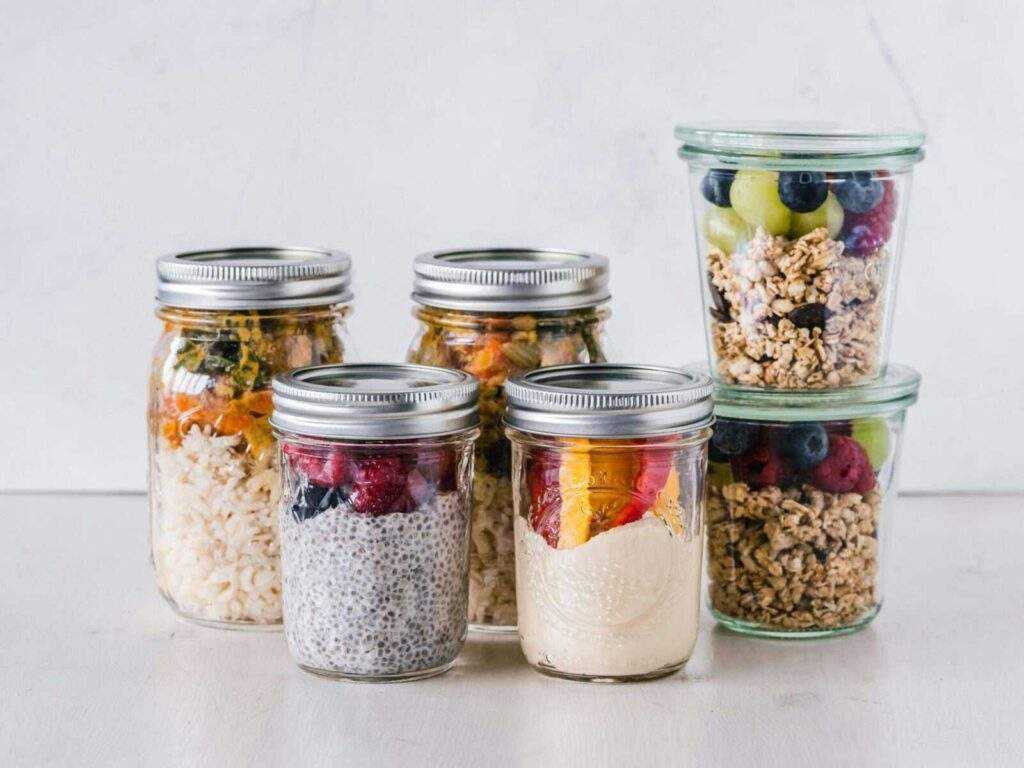
Zero Waste on the Go Essentials: Beyond the Basics
A. Zero Waste Travel Kit Essentials
Introduce the concept of a zero-waste travel kit and its role in minimizing waste on trips.
- Reusable Toiletries: Use refillable travel bottles and solid toiletries to reduce plastic waste. Brands like Ethique offer solid shampoo and conditioner bars. Solid toiletries are also TSA-friendly and take up less space in your luggage.
- Refillable Travel Bottles: Opt for silicone or glass travel bottles that can be refilled. Look for leak-proof designs to prevent spills.
- Portable Cutlery: Carry portable cutlery sets to avoid using disposable utensils. Many sets include a fork, knife, spoon, and even chopsticks, all in a compact case.
B. Taking Your Coffee Ritual Further: Reusable Coffee Filters
Disposable coffee filters contribute to waste and deforestation.
- Environmental Impact: Paper coffee filters are often bleached and contribute to deforestation. Many are not compostable due to chemical treatments.
- Reusable Alternatives: Introduce reusable coffee filters made from metal or cloth. Brands like CoffeeSock and Able Brewing offer great options.
- Cleaning Methods: Reusable filters are easy to clean and maintain. Metal filters can be rinsed and reused indefinitely, while cloth filters can be washed and reused many times.
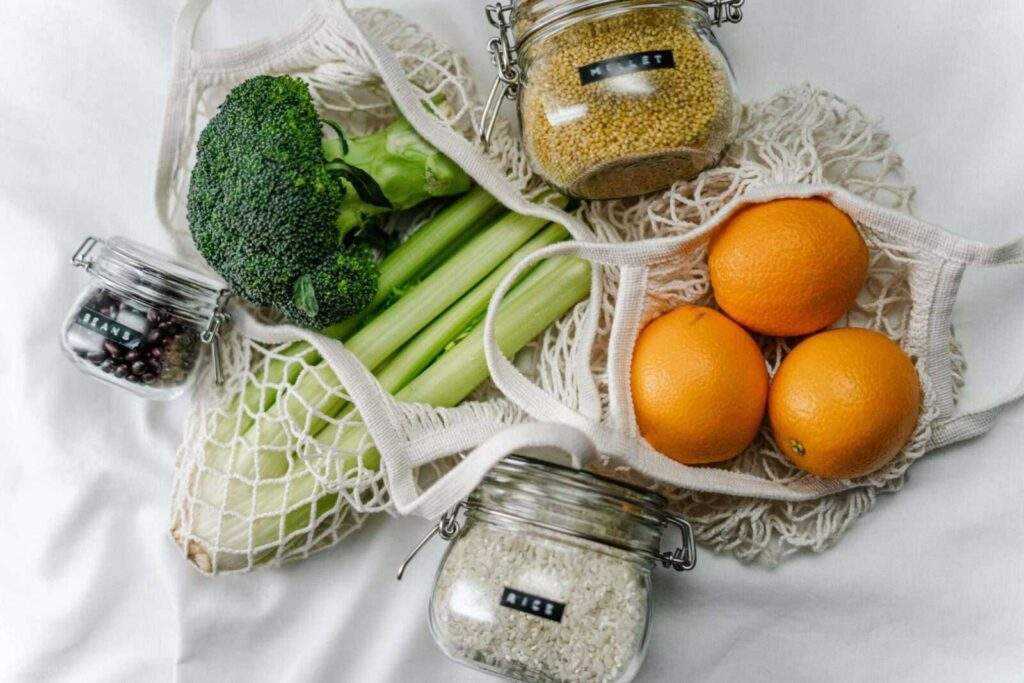
C. Saying No to Plastic Takeout Containers
Single-use takeout containers are a significant source of plastic waste.
- Plastic Pollution: Takeout containers often end up in landfills or as litter, contributing to plastic pollution. Many are made from polystyrene, which is difficult to recycle.
- Reusable Containers: Recommend carrying reusable containers for takeout meals. Brands like U-Konserve and Eco Lunchbox offer leak-proof designs.
- Convenience: Reusable containers are often more durable and provide better insulation, keeping food fresh for longer. Look for containers with compartments to keep different foods separate.
D. Period Power: Sustainable Menstrual Products
Disposable menstrual products generate significant waste.
- Environmental Burden: Tampons, pads, and their packaging contribute to landfill waste and pollution. The average woman uses thousands of disposable menstrual products in her lifetime.
- Sustainable Options: Introduce reusable menstrual cups and period underwear as eco-friendly alternatives. Brands like DivaCup and Thinx offer popular choices.
- Benefits: Reusable menstrual products are cost-effective and reduce waste. They are also more comfortable and often provide better protection compared to disposable options. Menstrual cups can be used for up to 12 hours, making them convenient for busy days.
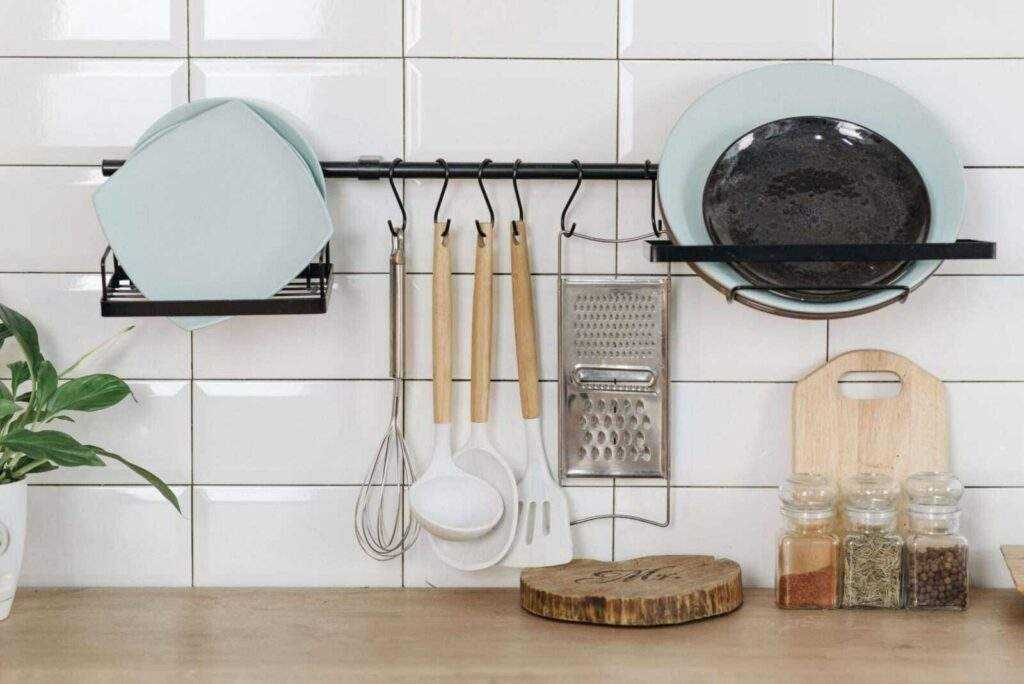
Making the Switch Seamless: Tips for Using Reusables Daily
A. Preparation is Key
Planning ahead can help you avoid relying on disposable items.
- Pack Ahead: Pack your reusable items before leaving home. Keep a designated bag or pouch for your reusable kit.
- Car Essentials: Store reusable items like bags, cups, and cutlery in your car for easy access. This ensures you always have them on hand, even for unexpected stops.
B. Building Habits
Incorporating reusable products into your daily routine can be done gradually.
- Start Small: Begin with simple changes, such as using a reusable water bottle or coffee cup daily. As these habits become second nature, you can add more reusable items to your routine.
- Gradual Integration: As you become more comfortable, incorporate additional reusable products. Replace single-use items one at a time to make the transition more manageable.
- Celebrate Progress: Recognize and celebrate your efforts to reduce waste. Sharing your progress with friends and family can inspire them to adopt similar practices.
C. Dining Out with Reusables
Use reusable products when dining out to reduce waste.
- Inquire Politely: Ask if you can use your own reusable coffee cup or takeout container when ordering. Many establishments are happy to accommodate these requests.
- Opt for In-House Dining: Avoid single-use containers by dining in whenever possible. This reduces the need for disposable packaging.
- Carry a Straw: Keep a reusable straw in your bag to avoid using plastic straws at restaurants. Some straws come with portable cases, making them easy to carry with you.
D. Maintenance and Cleaning
Develop a routine for cleaning your reusable products to ensure proper hygiene.
- Hygiene: Regularly clean your reusable items to maintain hygiene. Follow the manufacturer’s instructions for cleaning and care.
- Easy-to-Clean Materials: Choose items made from materials that are easy to clean and dishwasher-safe. This makes maintaining your reusable products convenient.
- Portable Cleaning Brush: Invest in a portable cleaning brush for on-the-go situations. This is especially useful for cleaning items like reusable straws.
Zero Waste Inspiration: Beyond the Products
A. Supporting Zero-Waste Businesses
Support businesses that prioritize sustainability and offer minimal packaging options.
- Seek Out Discounts: Look for restaurants and cafes offering discounts for using reusable cups or containers. Many establishments are willing to incentivize sustainable practices.
- Minimal Packaging: Choose products and services from businesses that prioritize minimal packaging. Support companies that use eco-friendly packaging materials.
B. Spreading the Word
Inspire others by sharing your experiences with zero-waste living.
- Openly Use Reusables: Use your reusable products openly to inspire others. Your actions can encourage others to adopt similar practices.
- Organize Swaps: Participate in or organize zero-waste swaps or donation drives. These events allow people to exchange reusable items and learn from each other’s experiences.
- Advocate for Policies: Advocate for policies that promote reusable alternatives and discourage single-use plastics. Support legislation that aims to reduce plastic waste.
C. Embracing a Minimalist Mindset
Prioritize experiences over acquiring disposable items to reduce waste.
- Mindful Consumption: Focus on mindful consumption and avoid unnecessary purchases. Consider the environmental impact of your buying decisions.
- Less is More: Remember that reducing waste often involves having less. Embrace a minimalist mindset to reduce clutter and environmental impact.

Zero Waste Resources: Tools for Your Sustainable Journey
A. Websites and Blogs
- Zero Waste Home: Bea Johnson’s blog offers practical tips for reducing waste at home and on the go.
- Plastic Pollution Coalition: Provides information and resources on plastic pollution and ways to reduce plastic use.
B. Online Stores
- EarthHero: An online marketplace for sustainable and eco-friendly products.
- Package Free Shop: Offers a wide range of zero-waste products, from personal care items to household essentials.
C. Communities and Forums
- Zero Waste Bloggers Network: A community of bloggers dedicated to zero-waste living.
- r/ZeroWaste on Reddit: An active online forum for sharing tips and experiences related to zero-waste living.
Conclusion
Adopting a zero-waste lifestyle on the go has numerous benefits for individuals and the environment.
- Summary: Zero waste practices reduce environmental impact, save money, and promote personal responsibility. Using reusable products can significantly decrease the amount of waste generated from single-use items.
- Individual Action: Emphasize the power of individual actions in creating positive change. Every small effort contributes to a larger impact.
- Call to Action: Encourage readers to start small and gradually integrate reusable products into their routines. Highlight the importance of taking the first step and celebrating progress along the way.
The Future of Zero Waste
Express optimism for a future with increased awareness and adoption of zero-waste principles.
- Collective Action: Highlight the potential for collective action to create a more sustainable world. When individuals, communities, and businesses work together, significant progress can be made.
- Optimism: Foster a sense of hope and motivation to continue making sustainable choices. Share success stories and examples of positive change to inspire others.
By embracing reusable products and adopting zero-waste practices on the go, we can make a significant positive impact on the environment. Let’s work together towards a more sustainable future, one reusable product at a time.

Zero Waste on the Go: Reusable Products – FAQ
This FAQ section tackles common questions you might have about incorporating reusable products into your daily life and minimizing waste on the go:
1. I’m overwhelmed! Where do I begin with reusables?
Start small! Choose one or two reusable products you’ll use daily, like a water bottle or coffee cup. Gradually incorporate more reusables as you get comfortable. Remember, progress, not perfection, is key!
2. What are some of the most impactful reusable products?
Reusable water bottles, coffee cups, shopping bags, and food containers are all excellent starting points. Consider reusable straws, utensil sets, and even travel-sized toiletries for a comprehensive zero-waste kit.
3. How do I convince restaurants or cafes to accept reusables?
Be polite and explain you’re trying to reduce waste. Many businesses are happy to accommodate reusable cups and containers. Encourage others to adopt this practice by supporting shops with eco-friendly policies.
4. What about cleaning my reusable products? Isn’t that more work?
Many reusable products are dishwasher-safe. Invest in a portable cleaning brush for on-the-go situations. Develop a cleaning routine to ensure hygiene and make it a seamless part of your day.
5. Are reusable products actually more eco-friendly?
Absolutely! They significantly reduce single-use waste and promote sustainability. Choose durable, long-lasting materials to maximize the environmental benefit of each reusable item.
6. What if I forget my reusable bag at the store?
Don’t despair! It happens to everyone. Opt for paper bags over plastic whenever possible. Paper decomposes, while plastic can linger in landfills for centuries.
7. I travel a lot. Can I still embrace zero waste on the go?
Definitely! Utilize reusable travel bottles, containers, and cutlery sets. Look for refillable travel-sized toiletries and solid cosmetic options to minimize waste generation while traveling.
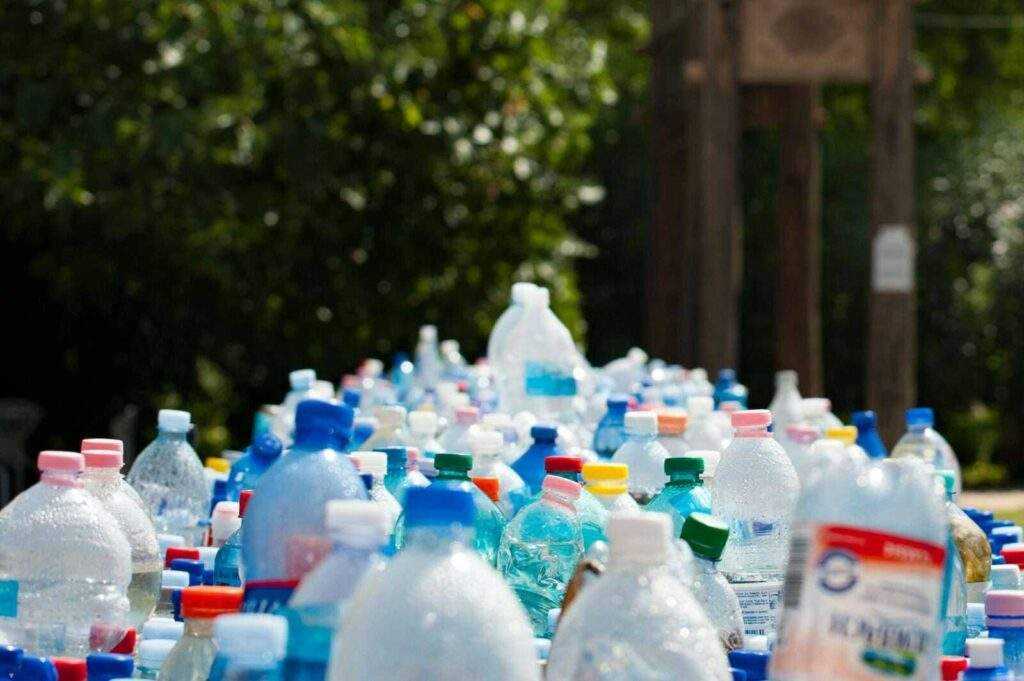
8. Is there anything else I can do besides using reusables?
Absolutely! Supporting zero-waste businesses, spreading awareness, and advocating for sustainable policies all contribute to a greener future. Embrace a minimalist mindset and prioritize experiences over unnecessary purchases.
9. Where can I find more information and inspiration?
This blog post is a great starting point! Explore the resources section for a curated list of websites, stores, and online communities dedicated to zero-waste living and reusable products.
10. Is this just a trend, or is zero waste living here to stay?
The zero-waste movement is gaining momentum due to growing environmental concerns. By adopting these practices, we collectively contribute to a more sustainable future. Join the movement and be part of the positive change!








